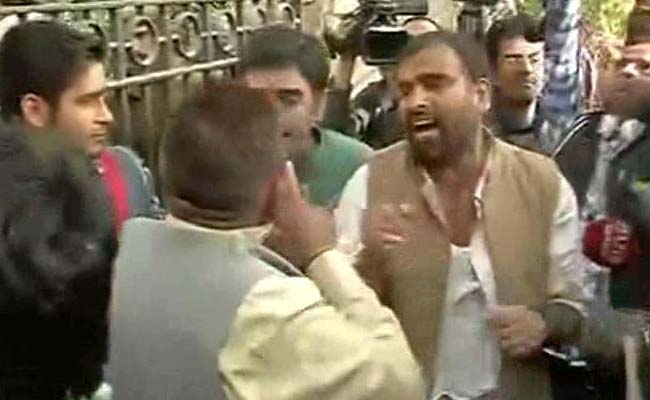Delhi Police chief BS Bassi speaks to NDTV
Quick Reads
Summary is AI generated, newsroom reviewed.
Attack on journalists, students 'a minor incident': Delhi Police Chief
Students, journalists were attacked at a Delhi court by group of lawyers
He also confirmed ABVP members didn't shout anti-India slogans as alleged
His comments came as the reporters who were attacked complained that Delhi policemen at the court did nothing to protect them from being beaten up by a group of lawyers.
The court was to hear the case of Kanhaiya Kumar, the president of the students union at Jawaharlal Nehru University (JNU), arrested last week on charges of sedition. Mr Kumar has denied any wrongdoing, but the police says it has evidence that at an event last week, Mr Kumar was among a group of students who recited anti-India slogans and expressed support for Afzal Guru, the terrorist hanged three years ago.
The government's reaction, which included asking the police to search the campus for Mr Kumar and his alleged associates, has united the opposition around the accusation that the Centre is acting without evidence against students, and has over-reacted to an event that should have been investigated and punished by university officials.

A large group of is seen shouting slogans of "Long Live India, Shut Down JNU" and manhandling people.
Mr Bassi has not allowed himself to be relegated to the sidelines of the surging JNU controversy. Last week, the Delhi Police warned on Twitter that anti-national activities would draw grave penalty. As an example of what not to support, it included a tweet that it believed was posted by Lashkar-e-Taiba founder Hafiz Saeed. However, it turned out that was an imposter account for the Pakistani terror chief. Home Minister Rajnath Singh controversially declared the JNU protests were supported by Hafiz Sayeed, a claim that backfired and incited much criticism.
Mr Bassi has said that even if the tweet was from a fake account, it was "sinister" and merited attention.
Track Latest News Live on NDTV.com and get news updates from India and around the world

